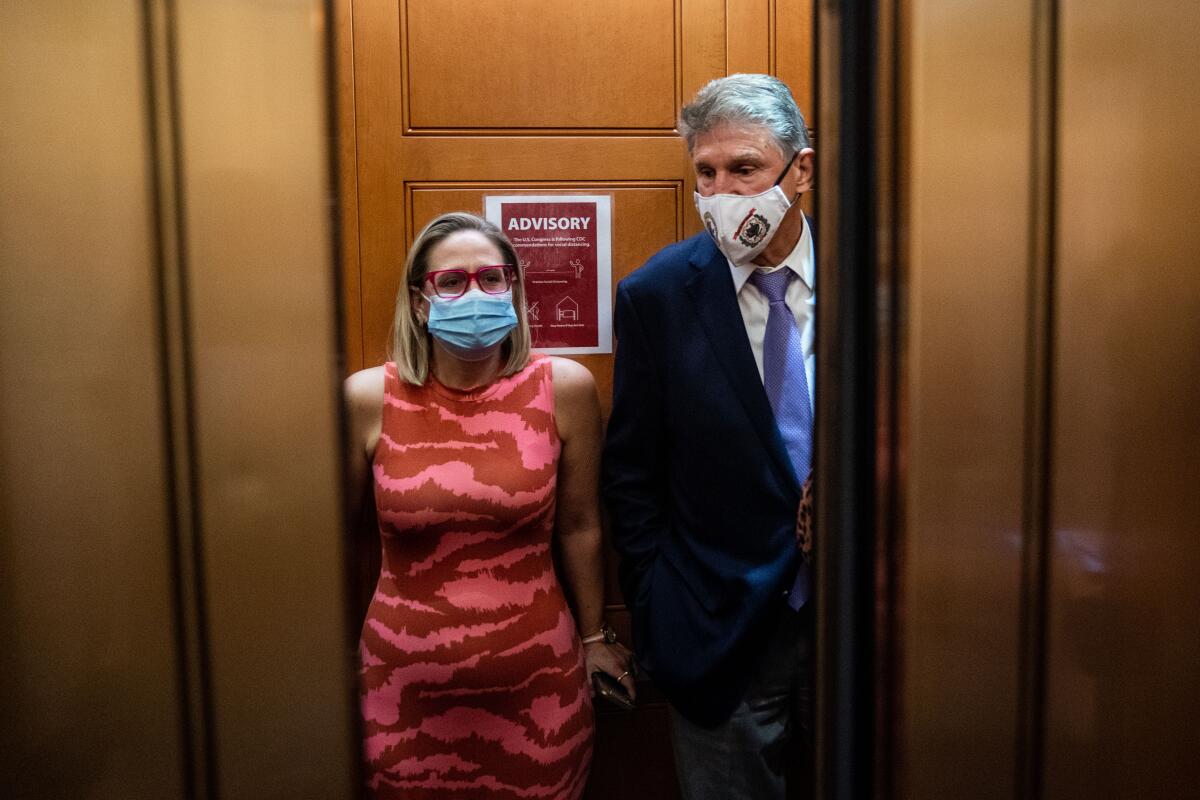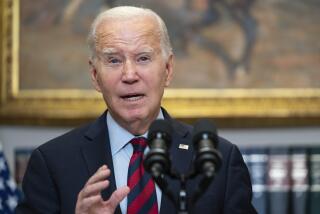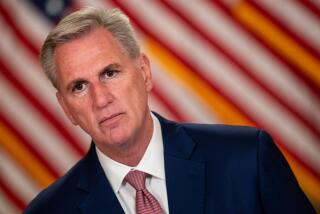Column: The party of ideas produces a Frankenbill, but it just might work

- Share via
WASHINGTON — Say what you like about Congress’ squabbling and eternally disarrayed Democrats; they’ve showed in the last few weeks that they deserve to be recognized as the party of ideas.
And not just a few ideas; many, many ideas — maybe too many for one piece of legislation: universal prekindergarten, federally subsidized child care, clean-energy tax credits, even a Civilian Climate Corps, paid for by a newly invented surtax on millionaires.
It’s a good thing they had so many ideas available; in a 50-50 Senate, where any one member can block any proposal, they’ve needed a bagful of backups.
Virginia’s race for governor, the most hotly followed contest in the country, is a battle over culture. The GOP has focused on schools, Democrats on Trump.
Sen. Kyrsten Sinema of Arizona won’t agree to raise tax rates on the wealthy? Fine, let’s try a levy on the untaxed capital gains of 700 billionaires.
Sen. Joe Manchin III of West Virginia doesn’t love that one? OK, let’s settle for a “patriotic tax” aimed at mere millionaires instead.
That doesn’t sound like the way legislating is supposed to happen. The world’s greatest deliberative body has turned into the world’s least deliberative body, with senators rummaging through the closets for ideas progressives and moderates can live with.
The product is what aficionados call a “Frankenbill,” an awkward creation stitched together from scraps of this and that. (The term refers to the gothic monster, not the former senator from Minnesota.)
It isn’t a thing of beauty. The version unveiled by President Biden on Thursday abruptly abandoned some of his most cherished campaign promises: lower prescription drug prices, free community college, paid family leave.
And, of course, it hasn’t passed yet.
But it’s undeniably big; $1.85 trillion over 10 years is only half of what Biden asked for, but still gigantic. And it’s undeniably ambitious; it includes the biggest spending package on climate change in history and significant expansions of federal support for child care and early education.
One problem with legislating in haste, though, is that the authors may be left to repent at leisure. Whatever version of this bill survives will include provisions few voters have ever heard of. That will make those programs easy for the GOP to attack, especially if any run into start-up problems. Anybody remember the disastrous launch of Obamacare in 2013?
To be fair, Democratic leaders believed they didn’t have much choice. Republican leader Mitch McConnell of Kentucky made it clear that he did not want to give Biden any help; his 49 fellow GOP senators have remained impressively unified as the party of no.
So the Democrats needed every last one of their 50 votes — and that meant whatever Manchin and Sinema said, goes.
For all that, the bill isn’t as bad as it sounds, as a 19th century humorist once said of Wagner’s music.
Despite the appearance of being slapped together in a few weeks of frantic negotiation, parts of the bill have been sitting on Democrats’ shelves for years, waiting for the moment when they can be written into law.
“There’s not much here that’s brand-new,” Elaine Kamarck of the Brookings Institution told me. “A lot of it is expansion of existing programs. And tax credits are pretty easy. There’s not too much the government can screw up.”
That’s on brand for Biden, who didn’t run for president as the candidate of new ideas. (That was Sen. Elizabeth Warren.) Biden ran as the candidate of old ideas; he promised to finish the work of the Obama administration. That’s most of what he’s doing now, just on a larger scale than many voters expected.
The provisions for universal prekindergarten education and federally subsidized child care are much bigger than anything the federal government has tried in those fields before. Implementing these programs, which depend on partnerships with willing state governments, may not be easy. And like other programs in the bill, they’re set to expire after several years — only six, in these cases.
So there will be drama ahead over which programs succeed and which fail, and which can survive Republican attempts to repeal them — just as Obamacare faced repeated threats before the GOP reluctantly acceded to its permanence.
Biden, who likes to compare his presidency with the transformative era of Franklin D. Roosevelt, can console himself with this: Some of FDR’s New Deal programs didn’t work, and several didn’t survive the 1930s.
“The country demands bold, persistent experimentation,” Roosevelt said in 1932. “It is common sense to take a method and try it. If it fails, admit it frankly and try another.”
The question for Democrats is whether bold ideas are what Americans want now. FDR began his experimentation at the bottom of the Depression, and voters rewarded his party for decades after.
Whether they will respond similarly this time is something Democrats will learn in 12 months in the congressional election of 2022.
More to Read
Get the L.A. Times Politics newsletter
Deeply reported insights into legislation, politics and policy from Sacramento, Washington and beyond. In your inbox three times per week.
You may occasionally receive promotional content from the Los Angeles Times.












